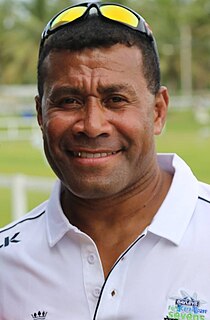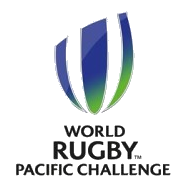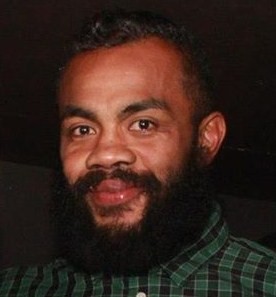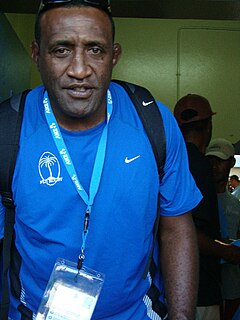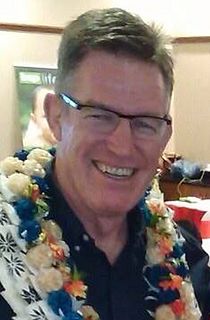This article includes a list of references, related reading or external links, but its sources remain unclear because it lacks inline citations .(June 2010) (Learn how and when to remove this template message) |
 | |||||||||||||||||||||
| Birth name | Saula Radidi | ||||||||||||||||||||
|---|---|---|---|---|---|---|---|---|---|---|---|---|---|---|---|---|---|---|---|---|---|
| Date of birth | June 4, 1984 | ||||||||||||||||||||
| Place of birth | Nausori, Fiji | ||||||||||||||||||||
| Height | 1.93 m (6 ft 4 in) | ||||||||||||||||||||
| Weight | 103 kg (16 st 3 lb) | ||||||||||||||||||||
| Rugby union career | |||||||||||||||||||||
| |||||||||||||||||||||
Saula Radidi (born 4 June 1984 in Nausori, Fiji) is a Fijian rugby union footballer. He plays as a centre for the Fijian national team. He was selected to represent Fiji against Australia during the 2010 June tours.
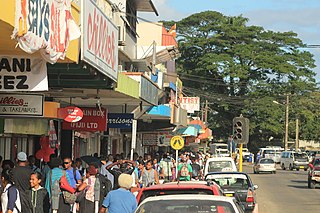
Nausori is a town in Fiji. It had a population of 47,604 at the 2007 census, the most recent to date. This makes it the fourth most populous municipality in the country. Situated 19 kilometers out of Suva, it forms one pole of the burgeoning Suva-Nausori corridor. Nausori is the home to 3 provinces Rewa, Tailevu and Naitasiri.

Fiji, officially the Republic of Fiji, is an island country in Melanesia, part of Oceania in the South Pacific Ocean about 1,100 nautical miles northeast of New Zealand's North Island. Its closest neighbours are Vanuatu to the west, New Caledonia to the southwest, New Zealand's Kermadec Islands to the southeast, Tonga to the east, the Samoas and France's Wallis and Futuna to the northeast, and Tuvalu to the north. Fiji consists of an archipelago of more than 330 islands—of which 110 are permanently inhabited—and more than 500 islets, amounting to a total land area of about 18,300 square kilometres (7,100 sq mi). The most outlying island is Ono-i-Lau. The two major islands, Viti Levu and Vanua Levu, account for 87% of the total population of 898,760. The capital, Suva, on Viti Levu, serves as the country's principal cruise-ship port. About three-quarters of Fijians live on Viti Levu's coasts, either in Suva or in smaller urban centres such as Nadi—where tourism is the major local industry—or Lautoka, where the sugar-cane industry is paramount. Due to its terrain, the interior of Viti Levu is sparsely inhabited.

Rugby union, commonly known in most of the world simply as rugby, is a contact team sport which originated in England in the first half of the 19th century. One of the two codes of rugby football, it is based on running with the ball in hand. In its most common form, a game is between two teams of 15 players using an oval-shaped ball on a rectangular field with H-shaped goalposts on each try line.
He has played his rugby both in Fiji and in New Zealand. His test debut was against the New Zealand Maori and took place at the Churchill Park stadium in Lautoka. He was part of the 2013 IRB Pacific Nations Cup winning side.

Lautoka is the second largest city of Fiji. It is in the west of the island of Viti Levu, 24 kilometres north of Nadi and port of entry in Fiji, after Suva. Lying in the heart of Fiji's sugar cane-growing region, it is known as the Sugar City. Covering an area of 16 square kilometres, it had a population of 52,220 at the 2007 census, the most recent to date.
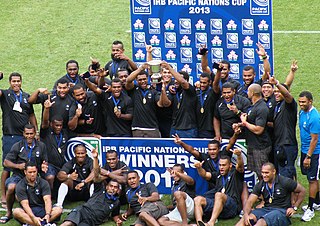
The 2013 Pacific Nations Cup rugby union tournament was held between five national sides in the Pacific Region: Canada, Fiji, Japan, Tonga, and USA.
